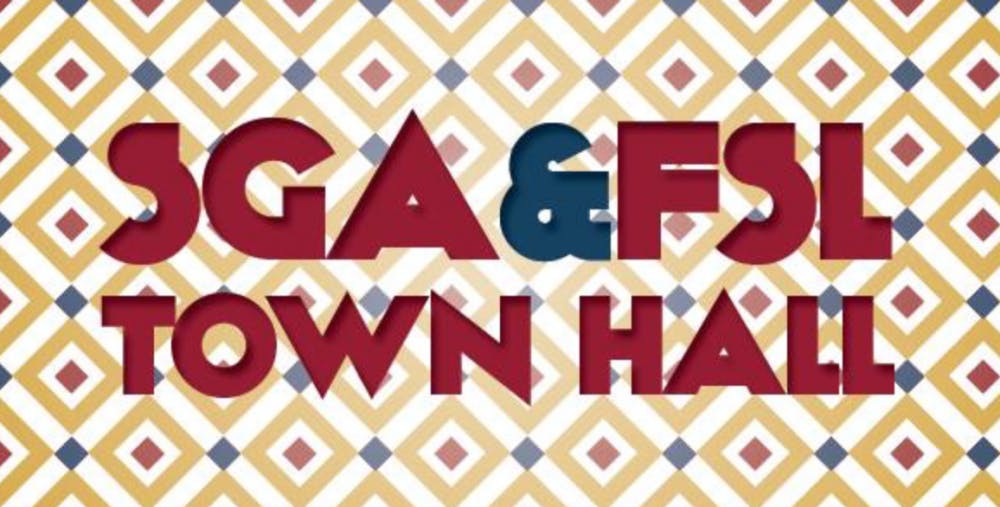Students took a close look at the positives and negatives of Fraternity and Sorority Life at Elon University during SGA’s open forum. Affiliated and unaffiliated students alike joined together to discuss what it means to be in FSL, why it is important to the culture of Elon and how the community can improve.
SGA representative and mediator senior Tres McMichael began the discussion by posing the question, “How would you describe sorority and fraternity life on campus at Elon?” Students shouted out answers “divisive,” “messy” and “empowering.”
At the forum, students called on each other to be more active members of Alamance County. SGA asked how philanthropy — an aspect of FSL many organizations pride themselves on — keeps them engaged in their community.
“All of our members are very deeply involved in the community,” said sophomore Sam O’Connor. “It’s important to be involved in the place around you. It’s very difficult to say everyone needs to be global leaders, and we don’t do outreach and don’t do community service.”
SGA showed 54.4 percent of females on Elon’s campus are involved in FSL, and 26 percent of males. This led way to discussion about the pressures women face in sorority life and the party culture on campus.
Exclusion in the selection process of members was also discussed at the forum. Member of Beta Theta Pi Fraternity and SGA junior Jack Johnson asked the students, “What other way can frat and sorority life be more inclusive? I’d like to hear more discussion.”
Sophomore Livi Murray sees a problem with racism in FSL. She suggested educating members on different cultures is the best way to improve inclusivity.
“There still happens to be situations where people of color are getting racial slang from other sorority or fraternity members, and there are parties where cultural appropriation is happening. Working on that making sure members are educated on those issues," Murray said.
Senior Arielle Watkins asked for students in the Interfraternity Council (IFC) and the Panhellenic Association to instead of wait for the education of different races to come to them, for students to go themselves to the Center for Race, Ethnicity and Diversity Education and the GLC.
“Go out of your way to find those events and be there,” Watkins said.
But sophomore Nathan Jones said the University as a whole needed to be more transparent about how it looks at race.
“Elon University needs to be authentic about it and we need to be authentic with our mission, rather than have it be some marketing packet by the institution,” Jones said. “Be authentic in your interactions and be authentic in your values, and these conversations will happen less and less.”


